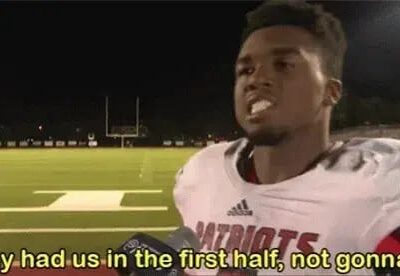
Campaign Buttons

Sign up to receive Surface Area or follow me on Linkedin or Twitter. Book a meeting here to talk about ghostwriting from my agency, Principals Media.
In 1864, with the re-election of Abraham Lincoln, my great, great grandfather William Cyphers started what later became a bi-partisan family tradition.
He began a collection of political campaign buttons from presidential candidates.
Eight score years later, those buttons are in a shoebox in my father’s closet.
My parents continued the tradition this fall by ordering Trump-Vance and Harris-Waltz campaign buttons online.
As a kid, I remember buying the buttons every four years from people on the street. The first one I bought was in 1980 when Reagan ran against Carter.
The collection began with Republican candidates. Later Dad wanted both parties represented. He acquired buttons even for candidates he didn’t support or like.
Buttons can cost a dollar, but they made you feel invested in the process.
Mom sent me a picture of the box yesterday.
Seeing decades of the candidates and slogans that defined American politics jumbled together in a pile provides a lot of perspective.
In the box, Teddy Roosevelt was next to Dole-Kemp, Carter-Mondale, Ross Perot, Gerald Ford and John McCain.
A couple of those people were elected, a few weren’t and one made Mount Rushmore.
I like to think that my father’s decision to collect buttons from both sides – not just the winners or the party he supported — is evidence of common ground we share.
My dad is 97 and he shakes his head at the vitriol these days. It’s hard to square the anger with the fact the country is at peace, the stock market is hitting record highs, the economy is robust, crime is low and people all over the world want to move here.
There are problems. But the country certainly faced bigger challenges in 1936, the first presidential election Dad remembers. The country was in the midst of the Great Depression. Dad was nine.
Franklin Delano Roosevelt won re-election capturing 523 out of the 531 votes in the electoral college. He won every state except Vermont and Maine.
His parents were among the minority who voted against FDR that year. They voted against FDR every other time he ran too.
They were dyed in the wool Republicans. Dad’s grandfather was the secretary treasurer of the Northern Republican Club of New Jersey for over 25 years.
They didn’t like FDR, but they listened to his fireside chats at home.
Dad didn’t vote in a presidential election until 1952 when he was 25. It was seven years after he enlisted in WWII. That’s because he was too young in 1944 (the voting age was 21 at the time.) In 1948 he was away at college and his state didn’t allow absentee ballots.
We are still debating absentee ballots decades later, along with other electoral issues.
The campaign this year has been marked by twists and turns, notably the decision by President Joe Biden to drop out and be replaced by Harris.
It’s unusual, but every year is unusual in its own way.
What doesn’t change is that every year there are buttons and every year the buttons go in the box.
Learn AI in 5 Minutes a Day
AI Tool Report is one of the fastest-growing and most respected newsletters in the world, with over 550,000 readers from companies like OpenAI, Nvidia, Meta, Microsoft, and more.
Our research team spends hundreds of hours a week summarizing the latest news, and finding you the best opportunities to save time and earn more using AI.
BRIEF OBSERVATIONS
DOT COM CRASH: The dotcom crash happened in October, 2002. Many young people I ask are unfamiliar with it. I kept dozens of IPO prospectuses to remind me that there are always a few survivors among the casualties.

TAILOR YOUR PITCH: Marty gets this right. It works for pitching a startup, or hiring people or in general any ask you plan to make.

BUILD A MODEL: Love that Jane Street, a quant trading firm, is hosting a competition to build an economic trading model with a $120,000 prize.

IDENTIFCATION: This will freak people out but it’s going to be so useful it’s inevitable.

VARYING TEXT LENGTH: It’s a trick writers use.
It can be effective; but don’t overdo it.
Because then it’s too obvious.







